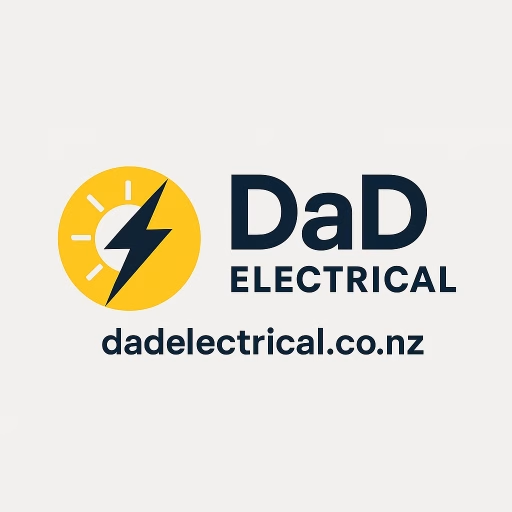As renewable energy becomes a popular choice for homeowners, understanding the different types of solar systems is key to making an informed decision. Two common options are grid-tied solar systems and grid-tied hybrid solar systems. While both connect to the electricity grid and allow you to use solar power, they differ significantly in functionality, flexibility, and cost.
This technical guide will explain the differences, benefits, and considerations for each type of system, helping you choose the one that best suits your needs.
What is a Grid-Tied Solar System?
A grid-tied solar system is directly connected to the electricity grid. It relies on the grid to manage excess energy and supply power when solar production is insufficient (e.g., during the night or cloudy days).
How It Works
- Solar Panels: Capture sunlight and convert it into direct current (DC) electricity.
- Inverter: Converts DC electricity to alternating current (AC), which powers your home.
- Grid Connection: Excess energy generated is sent to the grid, and you draw electricity from the grid when solar production is low.
Key Features
- No Batteries: Relies on the grid for backup power.
- Net Metering: Excess energy exported to the grid may earn credits or payments.
- Simple Design: Fewer components make it more cost-effective and easier to install.
Advantages
- Lower Initial Cost: No need for batteries reduces upfront investment.
- Efficiency: Energy flows directly to the grid without storage losses.
- Low Maintenance: Fewer components mean fewer potential issues.
Limitations
- No Power During Outages: If the grid goes down, your system will shut off for safety reasons.
- Dependency on the Grid: You’re reliant on the utility company for backup power.
What is a Grid-Tied Hybrid Solar System?
A grid-tied hybrid solar system includes a battery storage component, allowing you to store excess energy generated during the day for use later. It combines the benefits of a traditional grid-tied system with the flexibility and independence of energy storage.
How It Works
- Solar Panels: Generate DC electricity from sunlight.
- Inverter: Converts DC electricity to AC for household use.
- Battery Storage: Stores excess solar energy for later use.
- Grid Connection: Acts as a secondary backup when solar and battery power are insufficient.
Key Features
- Battery Backup: Provides power during outages or at night.
- Energy Independence: Reduces reliance on the grid.
- Energy Management: Intelligent systems optimize the use of stored and grid energy.
Advantages
- Power During Outages: Battery storage ensures you have backup power.
- Energy Savings: Reduce grid usage during peak-rate periods by using stored energy.
- Greater Control: Monitor and manage energy use with advanced system software.
Limitations
- Higher Initial Cost: Batteries add significant upfront expense.
- Maintenance: Batteries require periodic maintenance or replacement.
- Efficiency Loss: Energy stored in batteries undergoes conversion losses.
Key Differences Between Grid-Tied and Grid-Tied Hybrid Systems
| Feature | Grid-Tied Solar System | Grid-Tied Hybrid Solar System |
|---|---|---|
| Battery Storage | No | Yes |
| Cost | Lower upfront cost | Higher upfront cost due to batteries |
| Power During Outages | No | Yes |
| Energy Usage Control | Relies on the grid | Can store and use solar energy during peak times |
| Efficiency | Direct grid export (higher efficiency) | Some energy loss during battery storage/retrieval |
| Grid Dependency | Full dependency | Reduced dependency |
Which System is Right for You?
The best system for your home depends on your energy needs, location, and budget.
Choose a Grid-Tied Solar System if:
- You want the most cost-effective option for solar energy.
- You live in an area with reliable grid power.
- Outages are rare, and you don’t need backup power.
- You’re primarily interested in reducing electricity bills or earning credits through net metering.
Choose a Grid-Tied Hybrid Solar System if:
- You want backup power during outages.
- You live in an area with frequent power interruptions.
- You’re looking to reduce reliance on the grid.
- You’re willing to invest in battery storage for energy independence and greater control.
Important Considerations
- Cost:
- While grid-tied systems are more affordable upfront, hybrid systems provide long-term value through energy independence and resilience.
- Energy Storage Technology:
- Lithium-ion batteries, like the Tesla Powerwall or LG Chem, are commonly used for hybrid systems. They offer high efficiency, long life, and better performance compared to older lead-acid batteries.
- System Size:
- Both systems can be customized to fit your energy needs, but hybrid systems may require additional planning for battery capacity and load management.
- Inverter Type:
- Hybrid inverters or battery-ready inverters are required for hybrid systems, whereas standard grid-tied inverters are sufficient for non-hybrid setups.
- Future Expansion:
- Grid-tied systems can often be upgraded to hybrid systems later, though it may cost more than installing a hybrid system initially.
Conclusion
Understanding the differences between grid-tied solar systems and grid-tied hybrid systems is crucial for making an informed decision. A grid-tied system is ideal for homeowners seeking an affordable and straightforward way to reduce energy costs, while a hybrid system is perfect for those prioritizing energy independence and backup power.
At DaD Electrical, we specialize in designing and installing solar systems tailored to your needs. Whether you’re looking for a cost-effective grid-tied setup or a robust hybrid system, we ensure compliance with all relevant standards and deliver long-lasting performance.
Contact Us Today
Ready to explore solar energy for your home? Contact DaD Electrical for expert advice and personalized solutions.
- Call us (021) 1742788
- Visit our website https://dadelectrical.co.nz/solar-installation/
- Email us dd.elect.nz@gmail.com
Start your journey toward cleaner, more reliable energy today!
